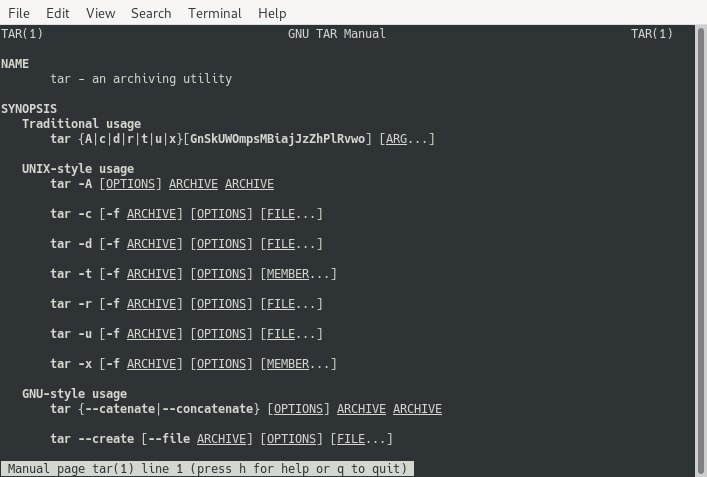

Next, we loop over the TarArchiveEntry using the TarArchiveEntry.getNextTarEntry() class and copy the content to an FileOutputStream. In place untar and delete tar (or tar.gz) Ask Question Asked 8 years, 4 months ago.
Untar tar gz archive#
tar archive (also known as untarring): We can untar the TAR archive using the TarArchiveInputStream class. We can add entries in the archive using the TarArchiveOutputStream.putArchiveEntry mehtod and pass in a TarArchiveEntry as an argument containing the file and filename respectively. Now we will extract the contents of documents.tgz file to separate /tmp/tgz/ directory. tar format (also known as tarring): We use the TarArchiveOutputStream to compress files and/or directories into TAR format. First make sure that you create the specific directory that you want to extract into by using: mkdir -p /tmp/tgz. We use Apache Commons Compress, make sure the :commons-compress dependency resides on the class-path. Make sure the following dependencies reside on the class-path. We use Apache Maven to manage our project dependencies. Tagged Interview linux tar tape archive tar.Let’s start by looking at the project structure.

Untar tar gz update#
-r : update or add file or directory in already existed.-j : filter archive tar file using tbzip.-z : zip, tells tar command that creates tar file using gzip.-u : archives and adds to an existing archive file.It first helps the user to extract or in other words unpack files in the compressed mode and once the unpacking or.

This command is used for 2 specific utilities in file operations.
Untar tar gz windows#
Untar tar gz Offline#
Using tar commands, we can compress the files to a significate amount and transfer to local or remote machine for offline analysis. When we work with telecom system (Base-Stations, Routers, servers), they do dump the logs file in a hug amount – several GBs of data, which is difficult to transfer to another machines for offline debugging. The tar command is to compress files and directories into a highly compress and uncompressed archive file commonly called tarball or tar.gz in Linux. In the Linux system, “ tar” stands for tape archive.


 0 kommentar(er)
0 kommentar(er)
